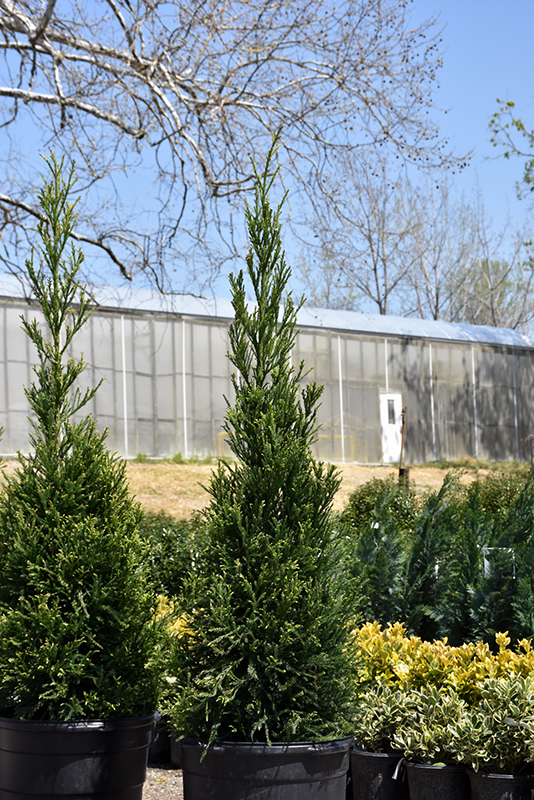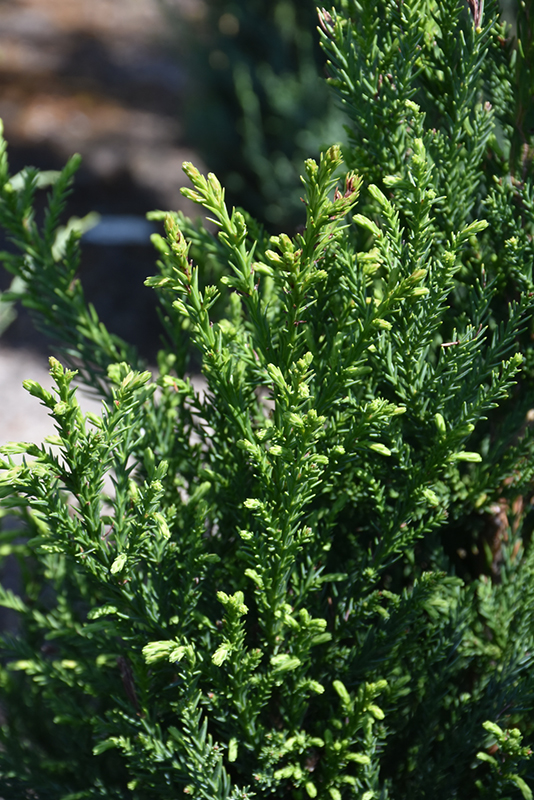Plant Search & Info
Radicans Japanese Cedar Cryptomeria japonica 'Radicans' Height: 30 feet Spread: 15 feet
Sunlight:
Hardiness Zone: 4b Description: A narrowly pyramidal, fast growing evergreen tree with attractive blue-green foliage that is consistent throughout the year, ideally suited as an accent, or planted in groups for interest; water on a regular basis until established Ornamental Features Radicans Japanese Cedar is primarily valued in the landscape for its distinctively pyramidal habit of growth. It has attractive bluish-green evergreen foliage. The scale-like sprays of foliage are highly ornamental and remain bluish-green throughout the winter. The peeling antique red bark adds an interesting dimension to the landscape. Landscape Attributes Radicans Japanese Cedar is a multi-stemmed evergreen tree with a distinctive and refined pyramidal form. Its relatively fine texture sets it apart from other landscape plants with less refined foliage. This is a relatively low maintenance tree. When pruning is necessary, it is recommended to only trim back the new growth of the current season, other than to remove any dieback. It has no significant negative characteristics. Radicans Japanese Cedar is recommended for the following landscape applications; Planting & Growing Radicans Japanese Cedar will grow to be about 30 feet tall at maturity, with a spread of 15 feet. It has a low canopy with a typical clearance of 2 feet from the ground, and is suitable for planting under power lines. It grows at a fast rate, and under ideal conditions can be expected to live for 60 years or more. This tree should only be grown in full sunlight. It prefers to grow in average to moist conditions, and shouldn't be allowed to dry out. It is particular about its soil conditions, with a strong preference for rich, acidic soils, and is able to handle environmental salt. It is quite intolerant of urban pollution, therefore inner city or urban streetside plantings are best avoided, and will benefit from being planted in a relatively sheltered location. Consider applying a thick mulch around the root zone in winter to protect it in exposed locations or colder microclimates. This is a selected variety of a species not originally from North America.![]()
![]()
![]()
![]()
![]()
![]()
![]()
![]()
![]()
![]()
![]()
![]()
![]()



